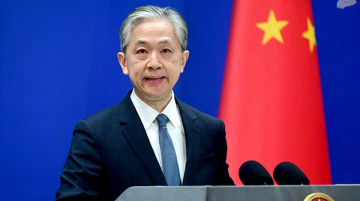Zambia’s slow creep towards an official default is raising a lot of discussion about how to avoid this kind of crisis from spreading. Not surprisingly, much of this focus is falling on China, and rightly so. China’s insistence on handling successive troubled loans on an opaque case-by-case basis, its selective participation in the G20’s DSSI initiative, and the wider uncertainty of how it will shape global lending norms are all world-historical dynamics that will shape poor countries’ financial futures.
However, if that were the only challenge, we’d be sitting pretty. The reality is that China is a significant new factor entering into a system that had already shown considerable strain before the pandemic. The complicated role of Eurobond and other private creditors, largely under US and UK jurisdiction, reveals this reality.
In the wake of Zambia’s official step towards default ten days ago, we have seen calls that: “Laws in the United Kingdom and United States (which govern most emerging market sovereign bonds) should be amended to stop litigious creditors from filing lawsuits against countries where the International Monetary Fund certifies that debt service is onerous in light of a crisis.” There have also been useful suggestions of what form these amendments should take, amendments that would probably be helpful to poor countries in the future.
However, getting these amendments approved is a whole other question, one that hints at a bigger issue than Zambia. The role of Wall Street and The City in relation to the US and UK has been at the heart of a slow-burning Western political crisis with no clear end in sight. The bailout of the financial industry after the 2008 economic crash has been reverberating through these systems for the last decade. The centrality of the financial sector to both the US and UK’s economic and political systems, makes reforming it extremely difficult, even in the face of widespread popular anger.
The result has been an uneasy political oscillation between candidates berated for being openly close to the industry [for example, those Wall Street speaking engagements that kept hounding Hillary Clinton], and candidates like Donald Trump and Boris Johnson, whose campaigning on the back of faux populism allowed their open closeness to the industry to hide in plain sight. This oscillation hints at a larger truth: that there might be little political will in Washington or London to impose any significant reform on private creditors.
The combination of the legacy of Western dominance of global financial institutions, the global power of US and UK courts, and the lack of domestic reins on these industries means that the litigious Eurobond lender could be emerging as a mutated 21st-century embodiment of Western power, a potential cousin to the 19th-century big game hunter.
The fact that this organism is emerging in an environment already fundamentally reshaped by China, and the fact that Chinese opacity is making the specific way it’s reshaping the system largely invisible, makes for uncertain times. The only option for the rest of us is to stare nervously at Zambia.








